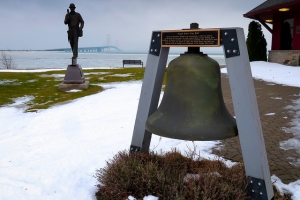Support migrant centric journalism today and donate

The Christian Science Monitor this week reports on the serious nursing deficit in the United States.
The joke circulating among doctors in the Philippines goes something like this: What's the new prerequisite for getting into nursing school? An MD.
That's because Filipino doctors are indeed heading back to school in great numbers to become nurses. Many of them are heading with their new degrees to the United States, where the scarcity of nurses and other healthcare professionals could reach critical levels.
The demand is expected to become more acute as the US's 78 million baby boomers get older. A shortage of more than 1 million nurses - amid a workforce of 3 million - is expected by 2012, the Bureau of Labor Statistics estimates.
Hospitals and universities are responding in myriad ways. New York's Columbia University is offering the nation's first clinical practice doctorate program in nursing, an effort to improve continuity of long-term care while raising the educational possibilities for those working in the profession. In Boston, Massachusetts General Hospital began a six-month course for new nursing graduates in the intensive care unit, once the domain of veteran nurses.
Some institutions have launched summer camps that simulate a day-in-the-life of a healthcare professional to get students interested in healthcare careers, while hospitals offer cars and cash bonuses to attract new hires.
But the most dramatic response has been recruitment from abroad. The number of foreign-educated nurses coming into the country more than tripled from 4,000 in 1998 to 15,000 in 2004. They now represent as much as 10 percent of all practicing nurses here, according to Linda Aiken, an expert on the nursing shortage.
It's an increase born of necessity - and active recruitment. Companies such as WorldWide HealthStaff Associates help connect foreign applicants to institutions needing pharmacists, nurses, and other healthcare professionals. They recruit nurses from all over the world, but a majority are Filipinos. Economic opportunity is a main draw: a doctor abroad can make 10 times more in the US as a nurse, says company cofounder Ron Hoppe.
When Enrico Arguelles, a Filipino doctor practicing in Billings, Mont., traveled home recently, he attended a reunion of medical school colleagues - where nursing school was all the buzz. Many in his class, even chiefs of staff at hospitals, have taken their nursing exams in the Philippines and headed abroad. "It is an economic thing," he says. "It's a no-brainer, even if you de-credential yourself and become a nurse."
US nursing associations do not oppose the right of nurses to migrate, but say they worry about the impact on the countries they leave behind.
"It is having some real impact in terms of the loss they are having," says Donald Redfoot, coauthor of a recent AARP Public Policy Institute report on international nurse migration.
Some countries, such as the Philippines, don't mind sending trained nurses abroad, in part because of the money they can send back home. But that pattern is less desirable in many countries in Africa, which has 25 percent of the world's disease burden, but less than 1 percent of its healthcare workers, according to research cited in the AARP report.
While nurse migration has provided good opportunities for foreigners and helped hospitals fill open positions, some question whether continued foreign recruitment is the right way to address the US labor shortage. "Focusing on trying to get more visas [for foreign nurses] diverts attention from the larger and more important policy need in our country, which is how can we become more self-sufficient," says Dr. Aiken, a professor at the University of Pennsylvania in Philadelphia.
The American Nurses Association (ANA) has tried to focus attention on growing a domestic supply of nurses, in part by lobbying to expand training facilities, says Cheryl Peterson, a senior policy fellow at ANA. After years of facing declining enrollment, nursing schools in recent years have turned away thousands of applicants because there is not enough faculty.
It is not easy to practice as a nurse in the US, and many foreign-educated nurses also go to countries like England and Canada. In the US, they must pass English proficiency exams and other competency tests - goals that Ms. Peterson says the ANA supports to ensure standards. Some hospital groups and others want to loosen those barriers. "Where the rub comes with us, with regard to immigration, is that we have no national workforce planning for healthcare professionals," she says. "We totally let the market dictate."
Their primary goal is not to address the nursing shortage, but programs like the doctoral degree at Columbia University could still help. "It is hopeful that a doctoral destination will continue to attract a changing face of nurse," says Judy Honig, associate dean of student services there.
But as long as opportunities for nurses in America outshine those abroad, the influx will probably continue.
Anselmo Pascual, a nursing aide in Dayton, Ohio, owned two small businesses in the Philippines before coming to the US in 1997. He makes far more for his family working here as an aide. "I enjoy talking to people, and there is always laughter," he says. "And the money is good."





















